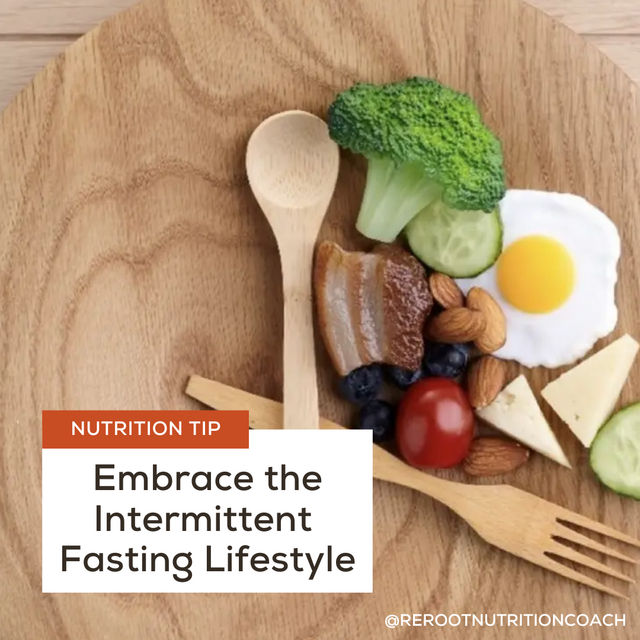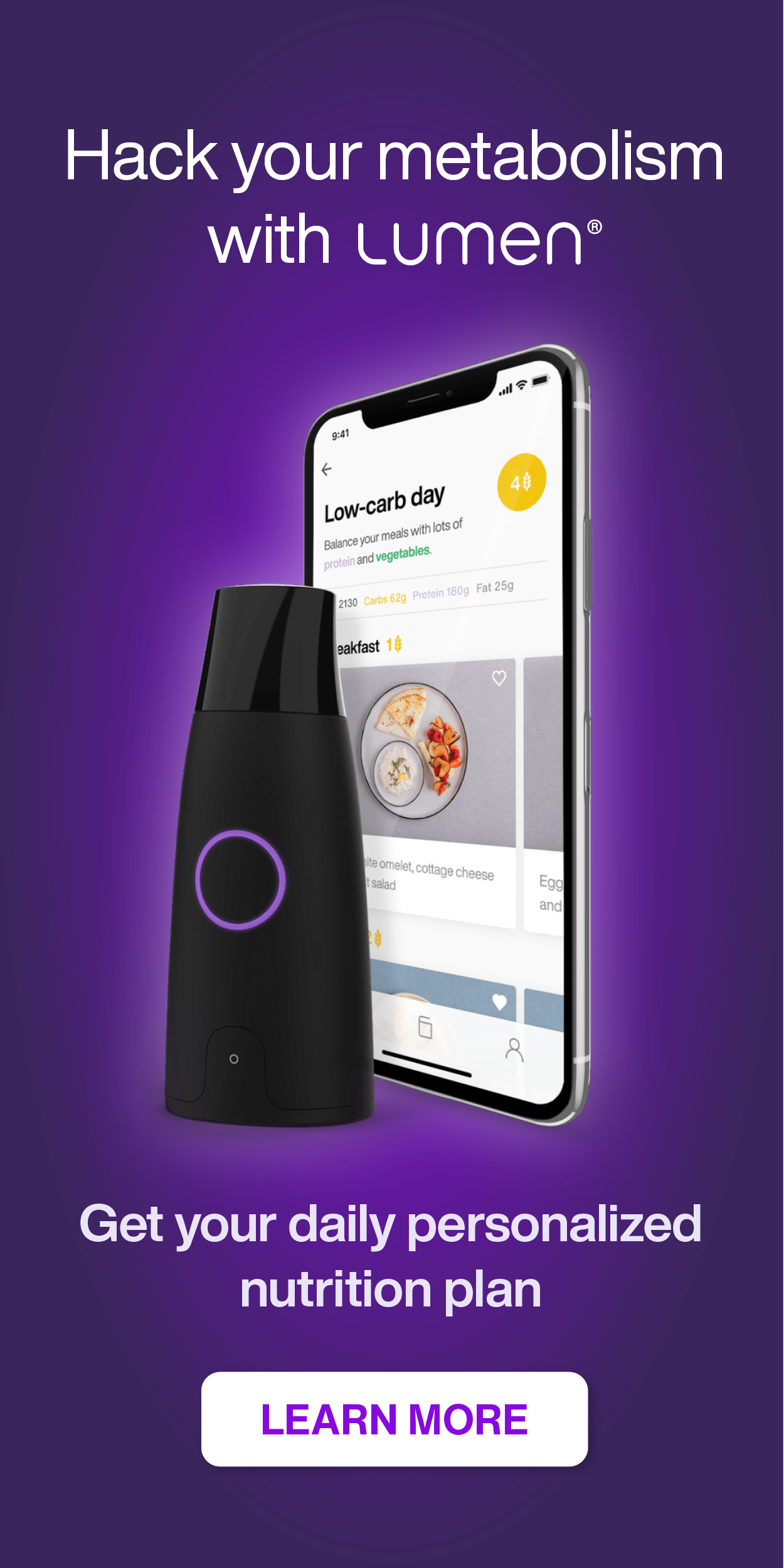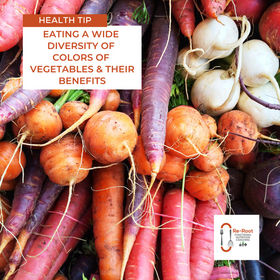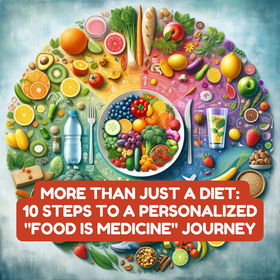
Intermittent Fasting: Your Guide to Health and Wellness
Ever wonder what all the hype is about around intermittent fasting?
What is it? Why is it good for you? Who’s it best for? How do you do it?
Well, today we will explore my comprehensive guide to intermittent fasting, a powerful tool for your health and wellness. You’ll learn about its benefits, methods, and how to implement it effectively.
1). Intermittent Fasting: A Lifestyle Shift, Not Just a Diet
In the broad and ever-evolving realm of nutrition and wellness, intermittent fasting is a concept that stands out. Contrary to conventional diets that put immense focus on ‘what‘ to eat, intermittent fasting pivots on ‘when‘ to eat. It’s a powerful dietary approach that alternates between periods of voluntary fasting and eating.
Aligning your food consumption to a fixed schedule can synchronize your eating pattern with your body’s inherent rhythms, a strategy that can bolster your overall health and well-being. Dr. Mark Mattson, a seasoned neuroscientist at Johns Hopkins School of Medicine, provides a unique evolutionary perspective: “Humans are well adapted to periods of fasting. Our ancestors had to survive in times of food scarcity, and the human body has developed mechanisms to stay healthy and function well during these times.”
Understanding these mechanisms and how to leverage them effectively is a key part of beginning your intermittent fasting journey.
This guide offers a comprehensive look at the concept of intermittent fasting, its numerous health benefits, ways to implement it, and the common pitfalls to avoid.
2). The Inner Workings of Intermittent Fasting
When you take a pause from eating, you provide your digestive system with a much-needed break, allowing your body to redirect its resources to other crucial functions. Dr. Jason Fung, a leading authority on intermittent fasting and low-carb diets, explains that fasting allows the body to “clean up the waste materials that have accumulated,” leading to various health benefits.
The key mechanisms through which intermittent fasting benefits the body include:
Autophagy:
Autophagy is the body’s self-cleaning process, where it eliminates damaged cells, in turn, generating newer, healthier ones. Regularly triggering autophagy through fasting can delay aging processes, prevent disease, and enhance overall health.
Enhanced insulin sensitivity:
Fasting can significantly improve insulin resistance, leading to healthier blood sugar levels. Better insulin sensitivity can stave off conditions like metabolic syndrome and type 2 diabetes.
Improved metabolic flexibility:
Metabolic flexibility is your body’s ability to alternate between fuel sources, such as carbohydrates and fats. Fasting can amplify this ability, contributing to better metabolic health.
Weight and body composition:
Numerous studies have found that fasting aids in weight loss and has a positive impact on body composition. It assists in reducing body fat while preserving muscle mass, a crucial factor in maintaining a healthy metabolic rate.
Note that autophagy, enhanced insulin sensitivity, improved metabolic flexibility, and changes in weight and body composition are not just benefits, but mechanisms through which IF works.
The synchronized activation of these mechanisms helps mitigate the risk of chronic diseases like type 2 diabetes, Alzheimer’s, and even some forms of cancer.
3). The Health Benefits of Intermittent Fasting
Intermittent fasting offers a plethora of health benefits. Some potential benefits include:
Weight Loss and Belly Fat Reduction:
Fasting can aid in weight loss and specifically the loss of harmful and hard-to-lose belly fat.
Improved Metabolic Health:
Intermittent fasting can improve various metabolic factors like blood sugar levels, insulin resistance, inflammation, and heart health.
Improved Brain Health:
It might boost the growth of new neurons, protect the brain from damage, and benefit brain functions like memory and learning.
Gut Health:
Intermittent fasting can improve the balance of gut bacteria, which can influence everything from digestion to immune function to mood.
Hormonal Health:
Fasting can help regulate key hormones like insulin, ghrelin, and leptin, promoting balanced hormonal health.
Improved Mood and Mental Health:
It may also help in managing mood disorders like depression and anxiety by modulating serotonin.
Reduced Inflammation:
Fasting can help reduce chronic inflammation, a key driver of many chronic diseases.
4). Grasping the Basics of Intermittent Fasting
Intermittent fasting is a dietary practice where you cycle between periods of eating and not eating. The idea is to focus more on when you eat, rather than what you eat. This can help your body use its energy more efficiently and has been linked to several potential health benefits. It’s important to note that it might not be suitable for everyone, and it’s always a good idea to consult with a healthcare provider before starting a new eating regimen.
Intermittent fasting is not a one-size-fits-all practice. There are various methods, each offering unique benefits and challenges. The most common ones include:
12/12 Method:
This method represents a balanced approach, dividing fasting and eating windows equally. For those new to fasting, it’s a way to experience the benefits of intermittent fasting with minimal changes to existing eating habits.

14/10 Method:

For those finding the 16/8 method a bit challenging initially, the 14/10 method serves as a softer entry point into the world of fasting. It entails fasting for 14 hours and eating within a 10-hour window.
16/8 Method:

This method, popularized by fitness expert Martin Berkhan, involves fasting for 16 hours and consuming your daily caloric intake within an 8-hour window. It’s the most popular method due to its flexibility and alignment with the human body’s natural circadian rhythm.
As per Dr. Peter Attia, a renowned longevity doctor, the selection of a fasting protocol should always be based on individual comfort, lifestyle, and health goals. The most effective form of intermittent fasting is the one that fits seamlessly into your life, and you can adhere to in the long run.
My suggestion is to follow the 12:12 fast 5 days a week and then strive to do the 14:10 or 16:8 fast the other two days. This way you can gain the benefits of both without causing too much stress to your body.
5). Delving into More Complex Fasting Protocols: Weighing the Costs vs. Benefits
There are several different IF methods, each with its own set of rules and benefits.
Here are a few popular ones:
5:2 Diet:
For five days of the week, eat normally. On the remaining two days, cut back your calorie intake to about 25% of your total daily calories (around 500-600 calories).
Eat-Stop-Eat:
This involves fasting for 24 hours, once or twice a week.
The key to choosing the right method is understanding your lifestyle and health goals. Each method has its own set of benefits, and no single method is inherently superior to the others.
While the Eat-Stop-Eat method and the 5:2 diet are the most popular types of intermittent fasting, there are other more complex fasting protocols. These include the “Warrior Diet” (fasting for 20 hours every day), and “Alternate Day Fasting” (fasting every other day).
However, these rigorous protocols can put more stress on your body and may not be sustainable in the long term. The benefits of these stringent protocols might not necessarily outweigh the potential costs, and they can be more difficult for beginners to follow. As with any dietary change, it’s essential to choose a protocol that fits with your lifestyle and health goals, and that you can sustain in the long term.
6). The Role of Calories in Intermittent Fasting: A Consideration, Not a Compulsion
While it is true that weight loss ultimately boils down to a calorie deficit, intermittent fasting is more about when you eat than how much you eat. It’s a concept that goes against the traditional dieting advice of calorie counting, and it is one of the reasons intermittent fasting is more sustainable and easier to follow for many people.
That being said, it’s important to remember that although calories do matter to some extent, they are not the sole determinant of health or weight loss. Not all calories are created equal, and the quality of the food you eat is incredibly important. Consuming nutrient-dense real whole foods that fuel your body and help maintain your energy levels is crucial.
When it comes to managing calories during intermittent fasting, a flexible approach is key. Some days you might consume more calories, other days less, depending on your activity levels and hunger cues. What’s important is to listen to your body and adjust your food intake based on hunger and fullness cues. This practice encourages a healthier relationship with food and reduces the risk of disordered eating patterns.
It’s not necessary to meet a specific calorie target each day. Instead, focus on the quality of your food. Prioritize nutrient-dense real whole foods that can nourish your body and support cellular repair and regeneration processes during fasting. Aim for a balanced meal that provides a good mix of macronutrients – clean proteins, non-starch and starchy carbohydrates, quality fiber, and healthy fats as described in my Ideal Plate strategy.
7). Planning Your Intermittent Fasting Journey: Best Practices and Pitfalls to Avoid
Embarking on your intermittent fasting journey might seem daunting, but having a plan in place can make it easier and more effective.
Here are six essential strategies to keep in mind as you begin your intermittent fasting journey:
Do’s:
Start Slow:
If you’re new to intermittent fasting, don’t jump straight into the more rigorous protocols. Begin with shorter 12:12 fasting periods and gradually increase the duration as your body adjusts. This can help you avoid potential side effects like fatigue, headaches, or irritability that can occur when you abruptly change your eating pattern.
Stay Hydrated:
While you’re fasting, it’s critical to keep your body hydrated. Filtered water, black coffee, and unsweetened tea can help you stay hydrated, curb hunger pangs, and even boost your metabolism during a fast.
Prioritize Sleep:
Good sleep is essential during fasting. It not only helps regulate hunger hormones, but it also supports overall health. Lack of sleep can increase cravings and hunger, making it harder to stick to your fasting protocol. Check out this blog post to learn some tips to improve your sleep.
Eat Nutrient-Dense Foods:
During your eating window, prioritize whole, unprocessed foods that provide the necessary nutrients. Eating a balanced diet can help prevent nutrient deficiencies and maintain your energy levels. Try to follow my Ideal Plate eating strategy.
Don’ts:
Avoid Overeating Post-Fast:
One of the common pitfalls of intermittent fasting is overcompensating for the fasting period by overeating during the feeding window. This can not only hinder your weight loss progress but can also lead to digestive discomfort.
Don’t Ignore Your Body:
It’s crucial to listen to your body during intermittent fasting. If fasting makes you feel unwell, it’s important to adjust your fasting protocol or seek professional advice.
8). Healthy ‘Break-the-Fast’ Breakfast Recipe

Breaking the fast is a critical aspect of intermittent fasting. What you eat after fasting plays a significant role in the overall benefits you reap from fasting. Here’s a recipe for a healthy and nutrient-dense wild-caught salmon recipe that provides you with high-quality protein, healthy fats, slow carbs, and fiber.
Wild Salmon Quinoa and Sweet Potato Hash
Ingredients:
- 2 wild-caught salmon fillet
- 1 cup cooked quinoa
- 1 large sweet potato
- 1 bunch of Tuscan kale
- 2 tablespoons extra virgin olive oil
- 2 cloves garlic, minced
- 1 medium onion, diced
- 1 teaspoon ground cumin
- Salt and pepper to taste
- 2 tablespoons tahini
- Fresh mint leaves for garnish
Instructions:
1). Begin by preparing your sweet potato. Preheat your oven to 400°F (200°C). Peel and dice the sweet potato into small cubes. Toss them in a bowl with a tablespoon of olive oil, salt, and pepper. Arrange them on a baking sheet and roast them in the oven for about 20 minutes or until they’re crispy and golden brown.
2). While the sweet potatoes are roasting, heat a tablespoon of olive oil in a pan over medium heat. Add the diced onion, Tuscan kale, and minced garlic to the pan and sauté until the onion becomes translucent.
3). Season the salmon fillets with salt, pepper, and cumin. Add them to the pan and cook for about 4 minutes on each side or until the salmon is cooked to your liking. Once done, remove the fillets from the pan and let them rest.
4). In the same pan, add the cooked quinoa. Mix it with the onions, Tuscan kale, and garlic, and let it heat up for a couple of minutes.
5). Flake the rested salmon fillets with a fork and add them to the pan. Mix gently to combine with the quinoa.
6). By now, your sweet potatoes should be ready. Add them to the pan and gently stir them in with the salmon and quinoa. Adjust the seasoning if necessary.
7). Drizzle the hash with tahini, garnish with fresh mint leaves, and serve hot.
This dish combines the protein-packed goodness of salmon and quinoa, the healthy fats of olive oil, and the complex carbohydrates of sweet potatoes and Tuscan kale. Plus, the mix of cumin, garlic, onion, and fresh mint will wake up your taste buds in the morning. Enjoy breaking your fast with this hearty, nutrient-dense meal!
9). Functional Medicine, Functional Nutrition, and Intermittent Fasting
Functional medicine looks at the body as a whole and aims to address the root causes of diseases. From a functional medicine perspective, intermittent fasting is a natural tool that aligns with the body’s innate rhythms and can be a powerful tool for disease prevention and health optimization.
Functional nutrition coaching takes this approach a step further by looking at the role of food in disease prevention and health optimization. A functional nutrition coach would emphasize breaking the fast with nutrient-dense foods like the example above, to fuel the body and support healing and regeneration processes during the fast.
For those new to intermittent fasting or those struggling to adhere to a fasting protocol, working with a functional nutrition coach can be incredibly beneficial. A functional nutrition coach can provide the necessary guidance and support to help you navigate your fasting journey successfully. They can help you choose the right fasting protocol based on your health goals and lifestyle, guide you on what to eat during your eating window, and provide strategies to manage potential side effects and challenges along the way.
10). Navigating the Intermittent Fasting Journey
The intermittent fasting journey is a personalized exploration of self-awareness and body consciousness. It involves listening to your body and understanding how different foods and eating patterns impact your health. This approach recognizes that intermittent fasting is not a one-size-fits-all solution, as what works for one person may not work for another.
Intermittent fasting is a powerful and adaptable tool that can enhance various aspects of health, including weight loss, metabolic health, brain function, and inflammation reduction.
To navigate this journey successfully, it is beneficial to integrate the principles of functional medicine, functional nutrition, and functional nutrition coaching. Working with a health coach can provide the necessary support, resources, and motivation to maintain an intermittent fasting regimen within a holistic approach to overall well-being.
Remember, it’s never too late to prioritize your health. Intermittent fasting offers a multitude of health benefits and can be the key to reaching your wellness goals. However, it’s essential to listen to your body and seek professional guidance to ensure it aligns with your unique health needs and goals.
Health is a marathon, not a race, so embrace patience, persistence, and flexibility as you embark on your intermittent fasting journey.
Are you ready to embark on this transformative path toward better health?
Get Personalized Support with Joseph at Re-Root Functional Nutrition Coaching
Looking for 1:1 coaching support to help you achieve your diet and lifestyle goals to support your sleep, then please book your free 30-minute discovery call with me today by clicking HERE.
During this call, we will:
- Uncover your story about your health challenges to date.
- Get clear on your diet and lifestyle goals to improve your health.
- Discuss how I can help you get back to feeling like your old self again.
- Share the details of my 3-Month Functional Nutrition & Lifestyle Coaching Program
- Learn about my overall coaching philosophy & what you can expect from me.
- See if we’re a good fit to work together.
- Walk away with key actionable steps to promote your wellness journey.
By the end of our conversation, you’ll feel optimistic and motivated to start making positive changes in your life.
Don’t keep putting off feeling better any longer, today’s the day to start making a difference.
Be sure to check out my website HERE too to learn more about my practice and how my unique functional nutrition approach can help you to feel your best.
Note: The information provided in this blog is for educational purposes only and should not replace personalized medical advice. Please consult with a healthcare professional or functional nutrition coach for individualized guidance and treatment.








